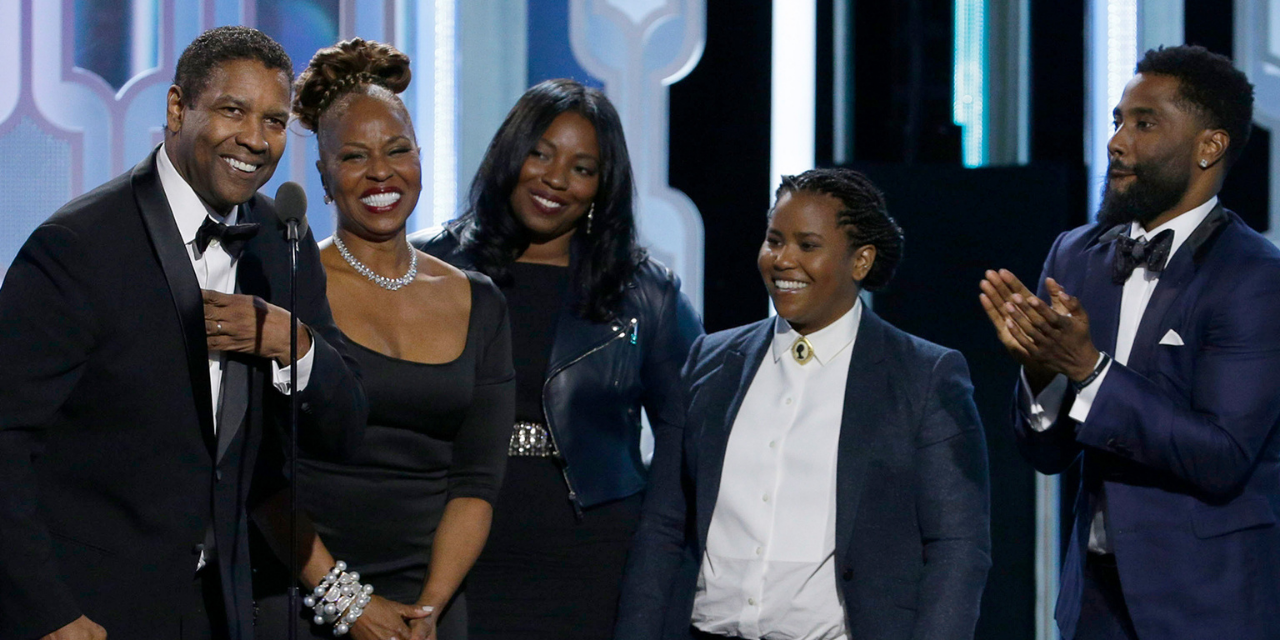Just shy of his 67th birthday, the Academy-award-winning actor Denzel Washington has developed a reputation both inside and outside of Hollywood as an individual comfortable in his own skin – and unafraid and unashamed to talk about his Christian faith.
Married to his wife, Paulette, for 38 years and the father of four children, Washington is the son of a Pentecostal pastor, and talks lovingly of his childhood. He says the sound of his father’s car pulling into the driveway each evening was comforting, providing stability and predictability to his young life.
In previous interviews, Mr. Washington has mused he sometimes wonders if he should have become a pastor himself.
“A part of me still says, ‘Maybe, Denzel, you’re supposed to preach. Maybe you’re still compromising.’ I’ve had an opportunity to play great men and, through their words, to preach,” he said. “I take what talent I’ve been given seriously, and I want to use it for good.”
That conviction has manifest in many ways, most recently in an interview in last Sunday’s New York Times with columnist Maureen Dowd. While the thrust of the article centered on Washington’s role in the upcoming release of his latest movie, “The Tragedy of Macbeth,” the interview’s most substantive points centered on Washington’s Christian faith.
“I’m more interested in directing because I’m more interested in helping others,” he said. “What I do, what I make, what I made — all of that — is that going to help me on the last day of my life? It’s about, Who have you lifted up? Who have we made better?”
Yet, Washington goes much deeper, suggesting the battles of today are not merely political – but rooted in the spiritual realm.
“This is spiritual warfare,” he said. “So, I’m not looking at it from an earthly perspective. If you don’t have a spiritual anchor, you’ll be easily blown by the wind and you’ll be led to depression.”
Speaking with Dowd, a liberal columnist who has been decidedly antagonistic towards socially conservative Christians in the past, Washington pulls no punches. “Have you read the Bible?” he asked her. “Start with the New Testament, because the Old Testament is harder. You get caught up in the who-begot-who-begot-who thing.”
Calling himself a “God-fearing man,” Washington acknowledged, “I try not to worry. Fear is contaminated faith.”
He went on to tell Dowd:
“The enemy is the inner me. The Bible says in the last days — I don’t know if it’s the last days, it’s not my place to know — but it says we’ll be lovers of ourselves. The No. 1 photograph today is a selfie, ‘Oh, me at the protest.’ ‘Me with the fire.’ ‘Follow me.’ ‘Listen to me.’”
He continued:
“We’re living in a time where people are willing to do anything to get followed. What is the long or short-term effect of too much information? It’s going fast and it can be manipulated obviously in a myriad of ways. And people are led like sheep to slaughter.”
Washington has previously urged for a revolution, turning back the “Twitter-tweet-meme-mean world that we’ve created” and “turn this thing around for young people.”
At the conclusion of the printed article, Dowd highlights what appears to be a direct and impassioned plea from Washington:
“Don’t play with God. Don’t play with God. You hear what I said? Don’t play with God. You heard what I said? Don’t play with God.”
In previous interviews, the beloved actor has said, “I blame no one. I look in the mirror.”
It’s refreshing to find a Hollywood star using his platform for good, unabashedly preaching principles of the Christian faith.
Denzel Washington is willing to say it – the question is whether or not we as a culture are willing to listen.
Photo from Twitter.






